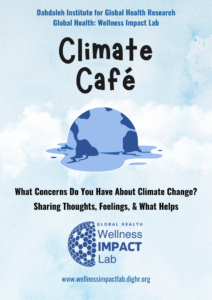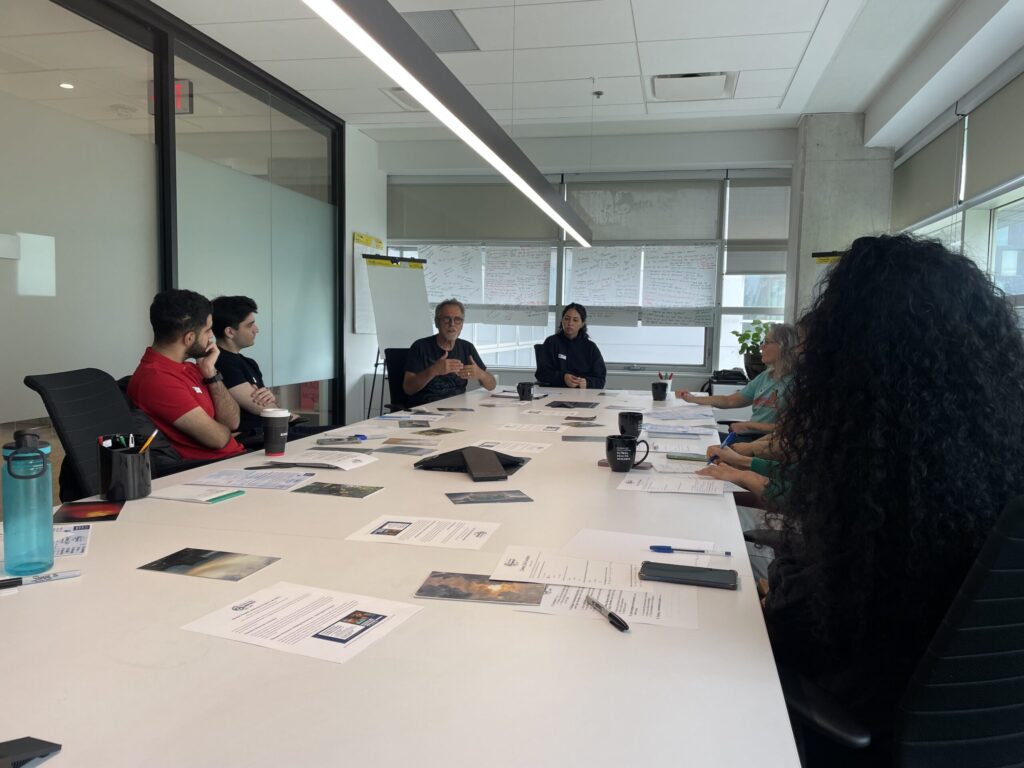Post
Published on August 19, 2024

This summer (June 27 and July 8, 2024), participants joined a calm, welcoming, and respectful environment to discuss ‘Climate Distress to Action’. Climate distress is the natural emotional and mental distress that arises when people are faced with the climate crisis. Many people experience a ‘double bind’ not wanting to contribute to climate warming but finding it difficult to change. While triggering complex feelings, the aim of the cafes is to conduct evidence-based initiatives for fostering resiliency and managing stress e.g., this is the Wellness Impact Lab's initiative to give voice to emotions, experience that we are not alone, and enable conversations about ways to take action.
It isn't a lecture or debate—it's a safe space to express feelings, share ideas, and find support for people who care about the planet. Meaningful conversations can spark powerful actions, and everyone’s voice is important! Each Climate Café began by setting group ground rules to create a safe and supportive space for all group members (old and new). While talking about the climate crisis can evoke strong emotions, it is a conversational space, not therapy. However, when unexpected directions come up, the facilitators were there to provide support.

Questions?
>> Click here to ask questions
Themes | Global Health & Humanitarianism |
Status | Active |
Related Work | |
Updates |
N/A
|
People |
N/A
|
You may also be interested in...
Updates – New Website for the 2023 World Health Assembly Simulation at York University
The World Health Assembly Simulation (WHA SIM), led by Dahdaleh faculty fellow, Dr. Ahmad Firas Khalid, announces a new website in preparation for the upcoming Global Health WHA SIM, taking place from April 30 to ...Read more about this Post
Recap – Water Resource Management in Freetown, Sierra Leone
On January 24, 2024, Brian Waters, a PhD Candidate in Geography at York University, shared his journey and findings from a study conducted in Freetown, Sierra Leone. Brian's inquiry was deeply inspired by the stark ...Read more about this Post
Dahdaleh Research Fellow Discusses the Humanitarian Consequences of Water Being Cut Off to Gaza in the Washington Post
Dahdaleh research fellow and Humanitarian Water Lab lead, Dr. Syed Imran Ali, was quoted in the Washington Post on the public health consequences of the collapse of water and sanitation systems in Gaza under Israeli ...Read more about this Post
